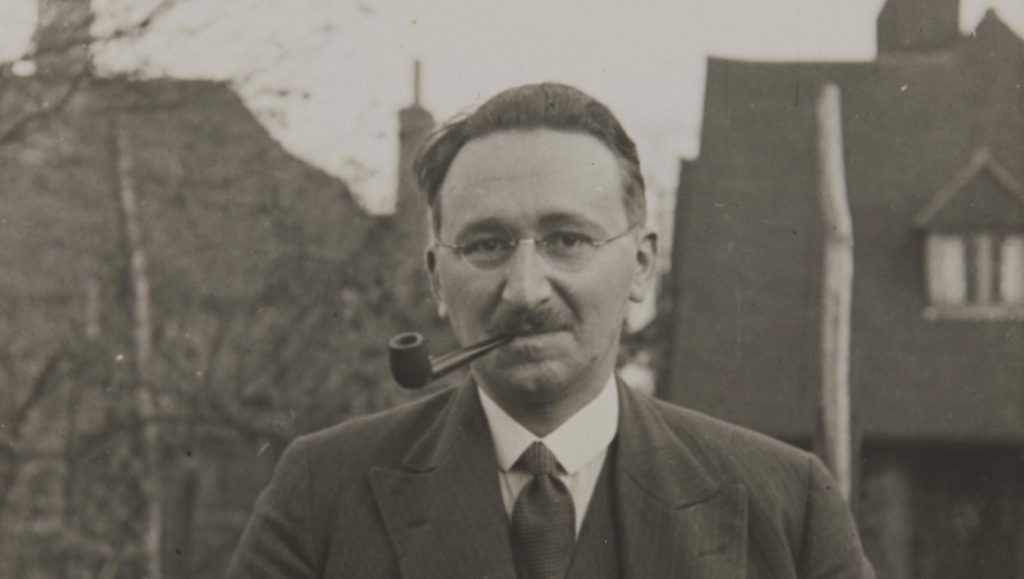Any modern student of economics has had the chance to study the works of Friedrich Hayek.
Though he did not start the school of Austrian Economics, Friedrich Hayek was actually born in Austria and fought adamantly for its ideals in the 20th century.
Hayek studied the business cycle primarily, but was also interested in pricing systems and monetary theory. Like his forefather, Adam Smith, Hayek believed that the free market did a much better job of regulating the economy than central planning.
Outside of the field of economics, you may have seen the popular EconPop video surrounding the relationship between Hayek and John Keynes, but more on this later.
Like many students of economics before him, Hayek dove into economic policy not for the fame and fortune, but to improve social conditions in society around him. He wanted to improve employment and the market to help those who struggled.
This led him to study the business cycle, the forces that led to unemployment and inflation. It was a conundrum that puzzled many at the time as the United States and other countries were in the midst of economic depressions.
It was his position on this puzzle that placed him against John Maynard Keynes, who had published his own piece, General Theory, in 1936. While Keynes suggested that central planning and stimulus could save nations, Hayek fought adamantly for the free market.
So what can modern policy makers and entrepreneurs alike learn from the Austrian?
Boom and Bust
Studying business cycles was a primary focus of Fredrich Hayek. He concerned himself with economic activity surrounding variables such as employment, production, and inflation.
Hayek understood that any stimulus and interest rates set by the governing body was only a band-aid which would bust at the most opportune moment. The economy is not perfect and is prone to countless disturbances, such as war.
If the governing body creates a false sense of optimism, it can lead individuals to purchase beyond their means. Surrounded by a false sense of security, people can send themselves into debt. We can see examples of this at the close of the 1920’s, as well as the recent housing bubble.
Modern business men should heed this advice. What seems like free money from the government may seem like a golden egg, but it can easily spoil. It is much better to create value that is outside such forces.
Individualism
Though an economist, Friedrich Hayek realized that individualism was vital as it was related to the actions individuals made in the economy.
Hayek concluded that no one lived in a bubble and ultimately the decisions people make affect those around them, a sort of butterfly effect. In his essay Individualism: True and False, he concluded that one of the most prominent variables of individualism was self-interest.
Though this may make some people cringe, it is the truth. Individuals make decisions in their best interest and in the best interest of those they care about, such as their friends and family. This leads them to attempt to make rational decisions, but as human beings, they make mistakes.
This led Hayek to realize that the economy should be concerned not with human design, but with human behavior. The lesson to be taken from this wisdom is that you cannot make individuals act in a way that goes against their best interest, which at times is the purpose of many pieces of legislation and policy.
Legislation Or Law
One concept that Hayek is not well-known for is his distinguishment between legislation and law. He believed that law had no need to be written down as it had already been deliberated and supported among society. Legislation on the other hand was an attempt to go against the common behavior.
Let's use the example of language to explain this concept. No singular person invented language, individuals simply found a way to communicate with each other. As a communication scholar, I realize that this process started with symbols, encoding, and decoding of messages.
However, written language came long after the actual invention of language among individuals.
“Legislation, the deliberate making of law, has justly been described as among all inventions of man the one fraught with the gravest consequences, more far-reaching in its effects even than fire and gun-powder. Unlike law itself, which has never been ‘invented’ in the same sense, the invention of legislation came relatively late in the history of mankind.” -Friedrich Hayek (1973). Law, Legislation, and Liberty, 1 (University of Chicago Press): 72.
In this concept, Hayek converts his economic thinking to philosophical application. Just as in business cycles, where the hand of central planning can cause catastrophe, the same can be said for laws.
A hundred individuals cannot decide what is moral for society, when society as a whole has already decided what the norms for interaction between individuals are.
The Knowledge Problem
Perhaps the greatest contribution to modern economics was Hayek’s concept of the knowledge problem. The knowledge problem addresses the primary issue of central planning, whereas it is impossible for one individual or a group of individuals to have complete knowledge of the world.
The best example of this is the essay by Leonard Reed, I, Pencil. This essay focuses on the manufacturing of a pencil, an object we take for granted on a daily basis. The lesson to take from this essay is that we as consumers know nothing of the manufacturing process.
We know nothing about about the tree the pencil is made or the granite that allows us to communicate with this tool. None the less, we use it and value the pencil enough to pay the price it costs to own it.
It is impossible to know all aspects of the economy, the origin of the of all the supplies that make the products we use on a daily basis. Hayek's point is that there is no need to know everything about a product, if anything we would waste our days away trying to learn every aspect of manufacturing.
The market allows for us not to worry about these knowledge problems, as we still know which price we are still willing to pay for said product.
Friedrich Hayek on Wikipedia








